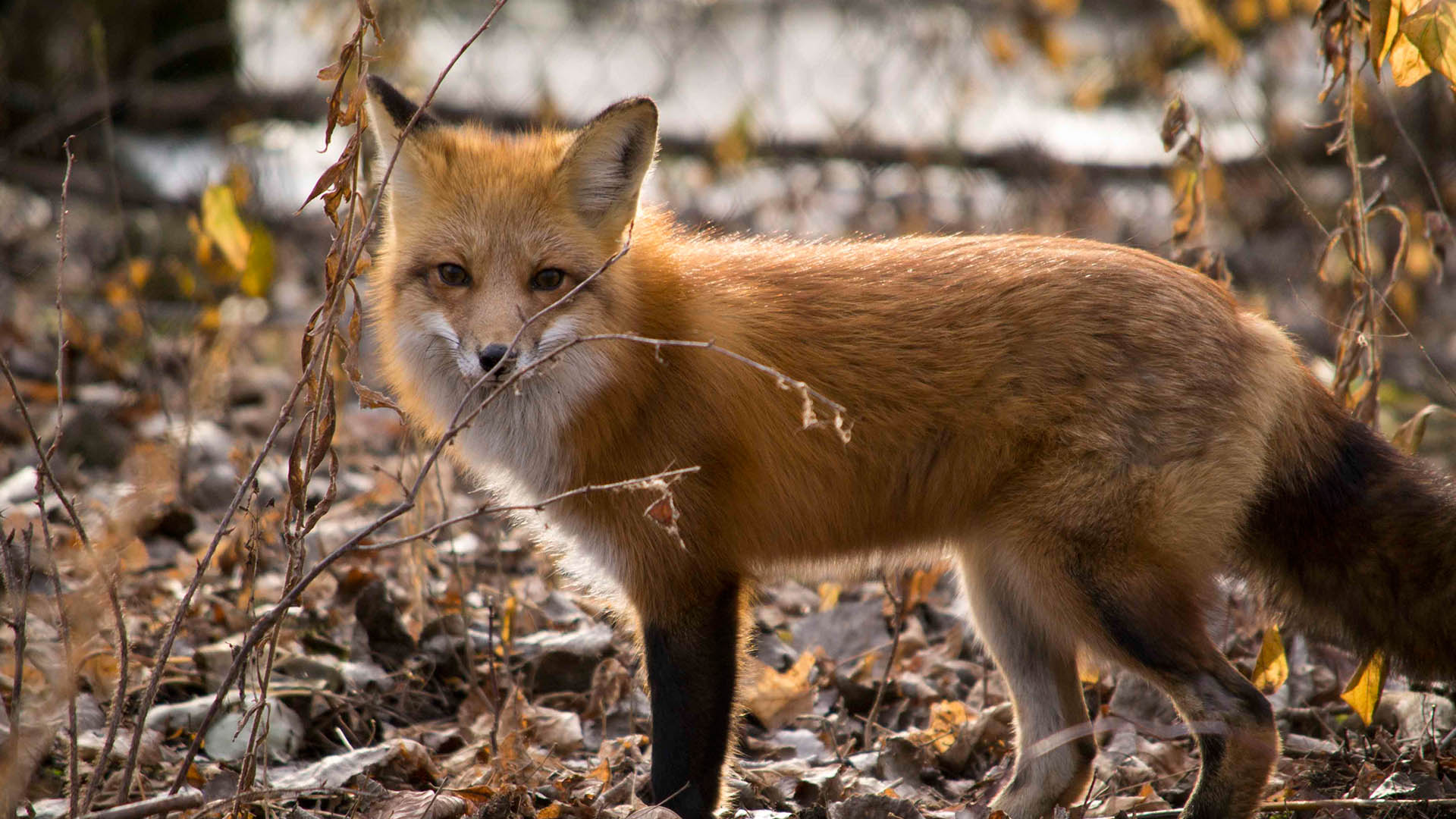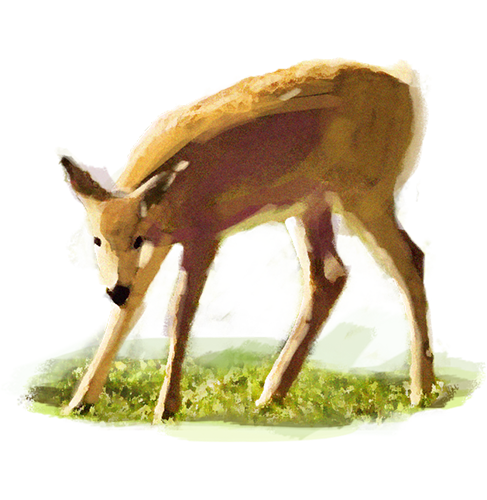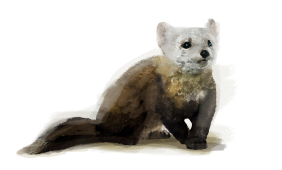
Article
The story of Timothea the Red Fox
When she was just five months old she ventured out and suffered an unfortunate mishap. Curiously exploring her environment she came across an unknown object: an Adirondack garden chair. Regrettably, she hopped on and got her thin front leg caught between the planks. As she struggled to free herself she broke her leg in three places. Fortunately good samaritans heard her cry and brought her to a rehabilitation center in Ontario where a wonderful team of professionals helped provide the treatment she needed. However after many attempts to save her leg, the veterinarians concluded that a full amputation was inevitable.
With only three legs Timothea could not return to the wild. She has thus found a permanent home at the Ecomuseum Zoo in the red foxes’ forested living space. When she arrived she spent approximately four weeks in our animal care center as per quarantine protocols. This period allows our veterinary team to ensure the newly arrived individual does not carry disease or parasites and that its general health status is good. The animal care team also works to ensure the animal’s physical, psychological and emotional state is satisfactory. We get to know our new resident and discover his or her personality, habits and preferences. Like all animals at the Ecomuseum Zoo Timothea needed care adapted to her specific needs.
Once the quarantine period was completed Timothea was progressively introduced to Inola and Tokala, the two red foxes already in our care in the living space dedicated to the species. The area was subdivided with a net across the center axis allowing the foxes to see and smell each other while not coming in direct contact just yet. After a few days and many positive interactions between the three foxes, the animal care team proceeded with a first direct meeting that went very well. Since then Timothea, Inola and Tokala cohabitate in great harmony!
If Timothea’s story seems tragic to you rest assured: the lamentable mishap in the early stage of her life has had no impact on her playful nature! A very curious little red fox, Timothea (Timbit among friends) can run, play and jump with surprising ease. The resilience of animals is always astonishing and we are thrilled to be able to offer her a loving home adapted to her needs. She is showered with love from the staff, volunteers and guests!
What should you do if you find an animal in distress?
Do not attempt to intervene by yourself. Contact a wildlife agent or a rehabilitation center. They will provide information related to the situation at hand. Sometimes we believe an animal is in distress when in fact it is not. An example? White-tailed Deer leave their offspring alone for most of the day. Young fawns emit no body odor that could attract predators and their spots help camouflage them well in the tall grasses. Too often people “rescue” fawns that they believe to be abandoned, thereby removing them from their natural habitat and the care of their mother. Remember: our best intentions are not always the best ideas! Don’t hesitate to ask a professional: they will tell you what to do and will intervene if necessary!

